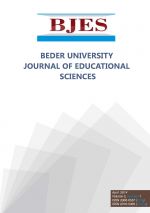
The postmodern female autograph in american literature:Black female autobiography in between literary experimentation and cultural strangulation
Abstract
Based on a qualitative analysis of the American literary canon of the 1980’s, early 21st century. This paper aims to identify and highlight the position that women –of –color occupy in this canon, the status enjoyed by autobiography in such a society and the degree to which writing one’s self for black female autobiographers meant revealing one’s innermost subjectivity rather than living a lie to oneself and to others. Considering the female quest for a voice in the mainstream American literature autobiographical canon as a claiming for at least a niche of one’s own, this paper correlates the peak periods of autobiographical productivity for women to the 1890 WWI era and the late 1960s and 1970s, as time frames characterized by an ever increasing participation of women in the public service. Delving deep into the differing texture of the male and the female discourse, the paper considers that while male writing held a privileged place in the canon, female writing held a marginalized devalued position in the outskirts of society. While, even after the postmodern decision that the author is dead, males feel free to express the truth in the corpus of their writing; women’s autobiographies posit their Selves as a way of establishing their own Selves. Though the majority of critics still persist in either
erasing the woman’s story by relegating it to the margins of the critical discourse or uncritically conlating the dynamics of male and female selfhood, they agree that female autobiographies share the use of understatement and fragmentation, and tend to be more truthful while writing outside the guise of iction. Viewing America just as a shattered mirror mistakenly relecting the sense of oppression, discrimination and alienation that the blacks go through, this paper considers the need for handling black autobiographical texts by developing culturally speciic ways. While the early black autobiographies were mainly conversion narratives focusing on the spiritual development and emancipation of the individual, the black autobiographies of the 1980s started to regard the genre as a site of formal revisionism and free play of signiication, adopting a new agenda of exploring the genre and developing new ways of dealing with texts and traditions. While the slave narratives articulated the ideals of selfhood, and the emancipation autobiographiescelebrated the personal triumphs, the post-WWII autobiographies assisted the task of full deinition by adding denominators such as race, sexuality, class and religion. Revisiting the tenets of postmodernism for establishing a bond between the genre of autobiography and the postmodern condition the paper regards the postmodern autobiography as the one challenging the traditional concepts of a completeness of the Self and revolutionizing the narrative practice, by offering new patterns of meaning which reject completeness, linearity and order in the name of randomness and chance. By delving into some of the autobiographies of the time the paper reveals how feminist politics and postmodern aesthetics become inextricably linked, abandoning the presence of a single, reliable narrative voice in favor of the postmodern blurring of the boundaries between fact and iction, history and myth.
Keywords
postmodernism, female autobiography, female narrative voice, cultural experimentation
Authors
Tidita ABDURRAHMANI
Download Article

This work is licensed under a Creative Commons Attribution 4.0 International License.
Warning: mysql_free_result() expects parameter 1 to be resource, null given in /var/www/journals/bjes.beder.edu.al/article.php on line 45